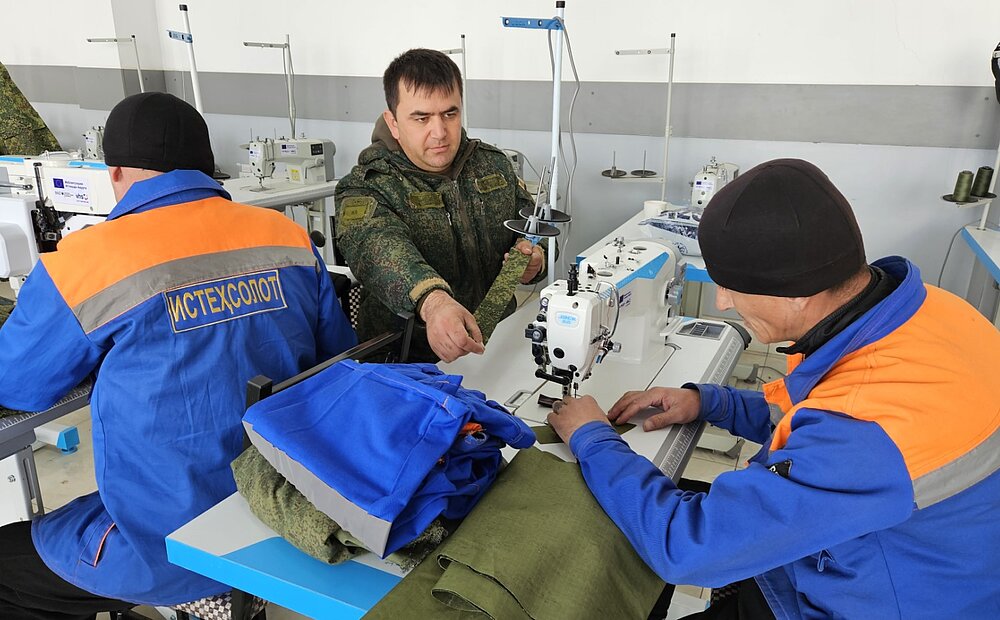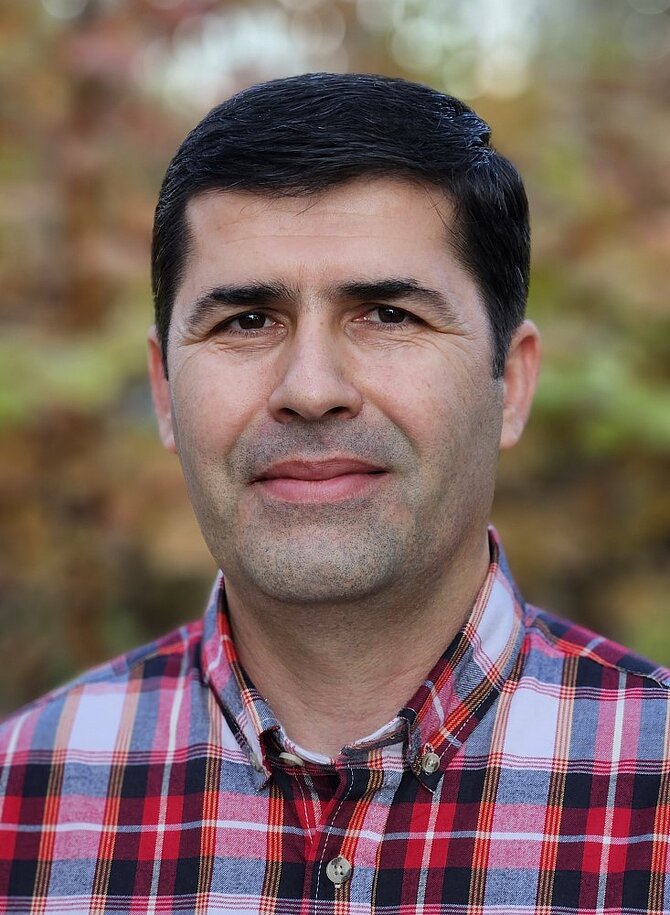We are excited to share with you an inspiring initiative that is taking place in the Yovon men’s prison, located approximately 60 km southeast of Dushanbe, the capital of Tajikistan. This initiative provides inmates with new skills and opportunities for personal growth and income generation while promoting their rehabilitation and reintegration into society.
We are talking about a sewing workshop that has been established in collaboration with DVV International Tajikistan and the prison authorities, who recognised the need for meaningful and productive activities for inmates. The workshop is equipped with 20 new modern sewing machines, tools, furniture and an air conditioner. It provides the inmates with a dedicated space to learn the art of sewing – a practical skill that can be used both within the prison and after their release. Through structured training programmes, inmates learn various aspects of sewing, from basic stitching and garment construction to more advanced techniques.
The items produced include bedding sheets and cotton mattresses for the needs of the prison. Some items are sold commercially, with the proceeds going towards funding other prison programmes or supporting the prisoners themselves.
“The sewing workshop at our prison has exceeded all expectations and has become a valuable tool for teaching inmates new skills and promoting rehabilitation. The dedication and hard work of the inmates involved in the programme have been truly remarkable, and I have seen firsthand the positive impact it has had on their lives. The quality of the products they create is impressive, and I am confident that the skills they have learned will serve them well in their transition back to society,” said Asror Abishev, deputy head of the prison.
By engaging in the sewing workshop activities, inmates can develop a sense of purpose, improve their self-esteem, and acquire a valuable trade skill. This can be particularly beneficial as they prepare to reintegrate into society, offering them the potential to seek employment or even start their own sewing-related business upon release.
Income generation in prison
In addition to the practical skills, the sewing workshop provides inmates with the opportunity to earn a small income, which can help them support themselves and their families during and after their incarceration. A prisoner who works full-time at the sewing workshop makes TJS 600 per month (around 50 Euro), which is equal to the current minimum wage in Tajikistan. According to Asror Abishev, the prison administration also participates in public tenders and has recently received an order from a hospital in Dushanbe for the sewing of 400 bedding sets. In such cases, the inmates can make up to TJS 1,000 per month. However, for those inmates serving a sentence for fraud, 75 percent of their income is spent to pay off their debts and the remaining 25 percent are for their families.
We are proud to be part of this initiative and remain committed to supporting the successful operation of the sewing workshop. This is a significant milestone in our ongoing mission to support the rehabilitation and reintegration of inmates, and we are eager to continue our efforts in this direction.
The activity is part of the SECRET 4 project (Social-Economic and Cultural Rights of Prisoners and Ex-prisoners in Tajikistan). The project is funded by the EU and the German Ministry for Economic Cooperation and Development (BMZ) and implemented by DVV International Tajikistan in partnership with the Main Department of Criminal Penalty Execution of the Ministry of Justice of the Republic of Tajikistan as well as the non-governmental organisations “BHR” and “JAHON”.




